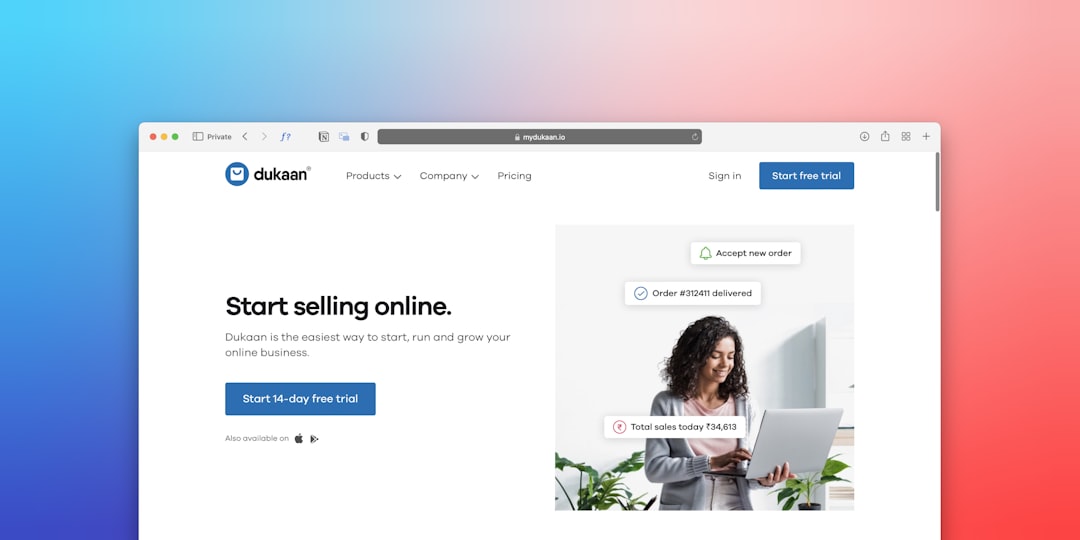
The global B2B marketplace is constantly evolving, and staying on top of the latest trends is crucial for businesses to remain competitive. In this article, we’ll explore the top global B2B trends to watch and how they can impact your business.
The Rise of E-Commerce and Online Marketplaces

by Team Nocoloco (https://unsplash.com/@teamnocoloco)
The growth of e-commerce and online marketplaces has been a major trend in the B2B world. With the rise of digitalization and the increasing demand for convenience, more and more businesses are turning to online platforms to buy and sell products and services.
According to a report by Forrester, B2B e-commerce is expected to reach $1.8 trillion by 2023, accounting for 17% of all B2B sales in the US. This trend is not limited to the US, as the global B2B e-commerce market is projected to reach $20.9 trillion by 2027.
Online marketplaces offer a wide range of benefits for businesses, including increased visibility, access to a larger customer base, and streamlined processes. As this trend continues to grow, businesses that do not have an online presence may struggle to compete in the global B2B marketplace.
The Importance of Personalization
In today’s digital age, customers expect a personalized experience, and B2B buyers are no exception. According to a study by Accenture, 91% of B2B buyers are more likely to make a purchase from a brand that provides personalized experiences.
by Jennifer Uppendahl (https://unsplash.com/@jenniferuppendahl)
Personalization goes beyond simply addressing a customer by name. It involves tailoring the entire buying experience to the specific needs and preferences of the customer. This can include personalized product recommendations, customized pricing, and targeted marketing campaigns.
Businesses that can effectively personalize their interactions with customers are more likely to build strong relationships and increase customer loyalty. As a result, personalization is a trend that businesses cannot afford to ignore in the global B2B marketplace.
The Growing Importance of Sustainability
Sustainability has become a major concern for businesses and consumers alike. In the B2B world, sustainability is not just a buzzword, but a key factor in decision-making. According to a survey by Nielsen, 66% of B2B buyers consider sustainability when making a purchase.
by Jas Min (https://unsplash.com/@filmbetrachterin)
Businesses that prioritize sustainability in their operations and products are more likely to attract and retain customers. This trend is particularly important in the global B2B marketplace, where businesses are increasingly looking for partners that align with their values and have a positive impact on the environment.
The Emergence of New Payment Methods
The traditional methods of B2B payments, such as checks and wire transfers, are slowly being replaced by more efficient and secure options. The rise of digitalization and the increasing demand for faster transactions have led to the emergence of new payment methods in the global B2B marketplace.
by rupixen.com (https://unsplash.com/@rupixen)
One of the most significant trends in B2B payments is the use of digital wallets. These allow businesses to make and receive payments quickly and securely, without the need for physical checks or bank transfers. Additionally, blockchain technology is also gaining traction in B2B payments, offering increased security and transparency.
As businesses continue to embrace digitalization, the use of these new payment methods is expected to increase, making transactions faster and more efficient in the global B2B marketplace.
The Impact of Artificial Intelligence (AI)
Artificial intelligence (AI) is transforming the B2B landscape, and its impact is only expected to grow in the coming years. AI-powered tools and technologies are being used to streamline processes, improve customer experiences, and drive sales in the global B2B marketplace.
by Gertrūda Valasevičiūtė (https://unsplash.com/@skraidantisdrambliukas)
One of the most significant applications of AI in B2B is in sales and marketing. AI-powered tools can analyze customer data and behavior to provide valuable insights and predictions, helping businesses make more informed decisions and target their marketing efforts more effectively.
AI is also being used to automate tasks and processes, freeing up time for employees to focus on more complex and strategic tasks. As AI technology continues to advance, its impact on the global B2B marketplace is expected to increase significantly.
The Growing Importance of Data Privacy and Security
With the increasing use of digital platforms and technologies, data privacy and security have become major concerns for businesses and consumers. In the B2B world, where sensitive information is often shared between partners, data privacy and security are crucial.
by Adrien Bruneau (https://unsplash.com/@papidridri44)
Businesses that prioritize data privacy and security are more likely to gain the trust of their customers and partners. This trend is particularly important in the global B2B marketplace, where businesses from different countries and regions may have different regulations and standards for data protection.
The Role of Social Media in B2B Marketing
Social media is no longer just a platform for B2C marketing. B2B businesses are also leveraging social media to reach and engage with their target audience. According to a report by Hootsuite, 84% of B2B marketers use social media as a marketing tool.
by Ben Kolde (https://unsplash.com/@benkolde)
Social media allows businesses to showcase their products and services, share industry insights, and connect with potential customers. It also offers a cost-effective way to reach a global audience and build brand awareness.
As social media continues to evolve and new platforms emerge, businesses that incorporate it into their B2B marketing strategy are more likely to see success in the global marketplace.
The Growing Importance of Customer Experience
In the B2B world, customer experience is becoming a key differentiator. Businesses that prioritize providing a positive and seamless experience for their customers are more likely to stand out in the global marketplace.
by Crew (https://unsplash.com/@crew)
This trend is particularly important in the B2B world, where relationships and trust play a significant role in decision-making. By focusing on providing a positive customer experience, businesses can build strong relationships with their customers and increase customer loyalty.
Conclusion
The global B2B marketplace is constantly evolving, and businesses that stay on top of the latest trends are more likely to succeed. From the rise of e-commerce and online marketplaces to the growing importance of sustainability and data privacy, these trends are shaping the B2B landscape and impacting businesses around the world. By understanding and adapting to these trends, businesses can position themselves for success in the global B2B marketplace.

















